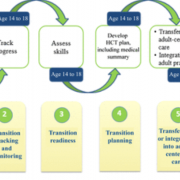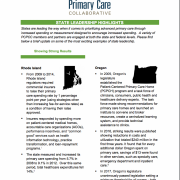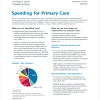You are looking at an archived version of our site. Please visit thepcc.org for a fresh, new experience!
Care Coordination & Integration
In order to have an effective healthcare system that is patient centered, care coordination is inherent. This involves significant communication between health professionals, to ensure that quality care is consistently provided to patients. In addition, as care teams strive to make primary care the center for all of a patient’s general needs, further integration may be necessary. With primary care serving as the “hub” for most patients, incorporating facets of other fields is not only plausible but an obvious next step for better coordination.
The PCC has consistently acknowledged the need for an increase in care coordination, and further integration of other fields, such as oral health and behavioral health. The PCC has shown a commitment to further primary care integration by creating the Primary Care and Behavioral Health Integration Workgroup and participating in grants centered around increasing the visibility of oral health in the primary care space.
Resources

Comparing Three Ways to Prepare Children and Caregivers to Manage Asthma after an Emergency Room Visit | December 2018

PCPCC | December 2018

Care Coordination | August 2018
Properly coordinated patient care leads to greater patient safety and better outcomes. This resource provides information on why care coordination is so important and how it can be incorporated in to practice. It also includes links to resources for measures of care coordination.

American Academy of Pediatrics | October 2018
Health Innovation Program, University of Wisconsin, Wisconsin Network for Research Support | September 2018

American Psychological Association | , Center for Psychology and Health | September 2018
- ‹ précédent
- 4 of 34
- suivant ›
News
August 26, 2020 | Healthcare Dive
September 1, 2020 | Oak Street Health
- ‹ précédent
- 4 of 90
- suivant ›
Events & Media
April 20, 2021 | Santa Fe Group
March 31, 2021 | Primary Care Collaborative
March 12, 2021 | Mass General Brigham
- ‹ précédent
- 4 of 73
- suivant ›
Related Content
Pagine
Pagine
Pagine
Associated Stakeholders:
Secondary menu
Copyright © 2024 Primary Care Collaborative











